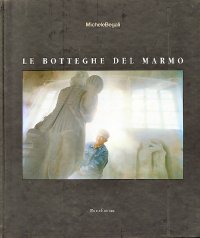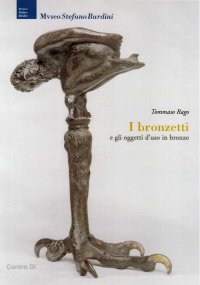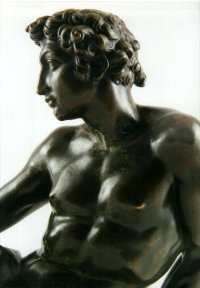Felice Palma. Massa 1583-1625. Collezione / Collection.
Texts by Andrei Cristina, Ciarlo Nicola, Federici Fabrizio, Claudio Casini and Sara Ragni.
Italian and English Text.
Pontedera, 2024; bound in a case, pp. 289, b/w and col. ill., b/w and col. plates, cm 24,5x34.
(L'Oro Bianco. Straordinari Dimenticati. The White Gold Forgotten Masters).
cover price: € 160.00
|
Books included in the offer:
Felice Palma. Massa 1583-1625. Collezione / Collection.
Texts by Andrei Cristina, Ciarlo Nicola, Federici Fabrizio, Claudio Casini and Sara Ragni.
Italian and English Text.
Pontedera, 2024; bound in a case, pp. 289, b/w and col. ill., b/w and col. plates, cm 24,5x34.
(L'Oro Bianco. Straordinari Dimenticati. The White Gold Forgotten Masters).
FREE (cover price: € 160.00)
Le botteghe del marmo
Italian and English Text.
Ospedaletto, 1992; bound, pp. 153, 10 b/w ill., 60 col. ill., cm 24x29.
(Immagine).
FREE (cover price: € 34.49)
Museo Stefano Bardini. I Bronzetti e gli Oggetti d'Uso in Bronzo
Edited by Nesi A.
Firenze, 2009; paperback, pp. 191, 102 b/w ill., 7 col. ill., cm 17x24,5.
(Museo Stefano Bardini).
FREE (cover price: € 30.00)
Bronzetti e Rilievi dal XV al XVIII Secolo
Bologna, 2015; 2 vols., bound in a case, pp. 729, ill., col. plates, cm 21,5x30,5.
FREE (cover price: € 90.00)
Vested voices 2. Creating with transvestism: from Bertolucci to Boccaccio
Angelo Longo Editore
Edited by Pedriali F. G. and Riccobono R.
Italian and English Text.
Ravenna, 2007; paperback, pp. 160, ill., cm 17x24.
(Il Portico. Sezione Materiali Letterari. 141).
series: Il Portico. Sezione Materiali Letterari
ISBN: 88-8063-549-2 - EAN13: 9788880635499
Subject: Essays (Art or Architecture)
Languages: 

Weight: 0.3 kg
For Thomas More Utopia is an existential, social, political ideal place we all aim to reach. But it is an island. It is that island that one will reach if one embarks on a trip, by sea, by land, by outer space (and here a glimpse of Fellini's 8 e 1/2 springs to mind). A trip that is illusory, as Utopia cannot be reached - and indeed no-one ever will reach it, because, in fact, it has already been lost. We have all been there, each of us has already experienced it. Utopia thus rests in the past and not in the future, and so our trip to this Edenic place (the place of the original unity, but also the time when we were in congruent communication with our most authentic Self, the god within us: when we were, in Gadda's words, omnipotent) must be a trip backwards. A return trip to and through the fathers and mothers, not to reach unity again, but to accept its loss, returning to ourselves as healed as one can be, if ever can be, but with awareness. It is exactly in this return trip that the essence of this volume lies - a trip backwards in time and through artistic efforts. A trip within the self, to deconstruct and reconstruct the self. So that it may come to terms with the Self. Thus utopia (strictly in small letters) can be destabilised as lay, as democratically part of us all - ultimately as nostalgia.












